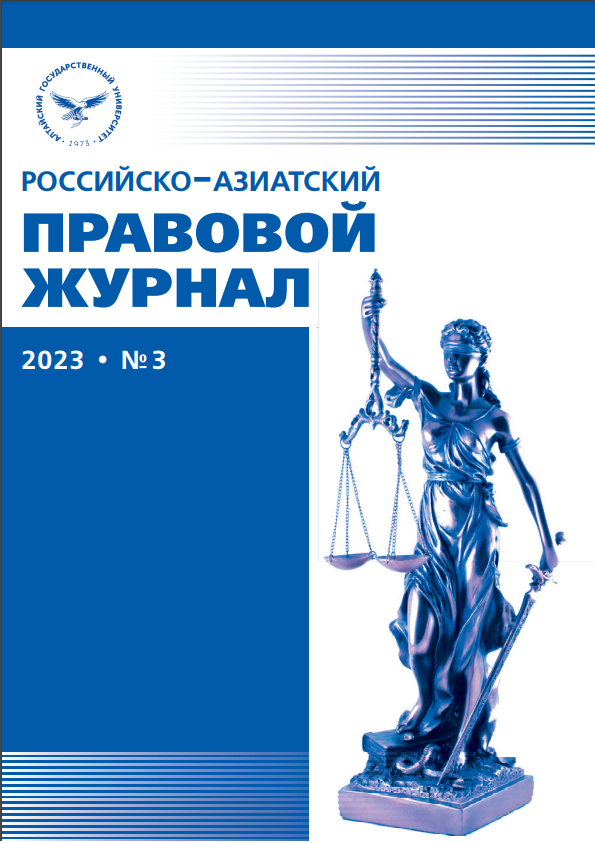ON THE IDENTITY OF THE LEGAL SYSTEM OF THE REPUBLIC OF UZBEKISTAN
Abstract
xThe historical development and cultural and legal traditions of the Republic of Uzbekistan have had asignificant impact on the formation and improvement of its legal system. Original in content, it reflects thetransition from the socialist to another type associated with the strengthening of national Uzbek and Slaviccustoms. The modern policy of the state is aimed at creating a stable legal system through the legislativeconsolidation and consolidation of public relations and social values. Understanding the peculiarities ofthe legal system of the Republic of Uzbekistan is necessary for a qualified analysis of draft laws, for makinga balanced decision on the expediency of reception, competently overcoming current problems and a realassessment of the legal consciousness of the Uzbek people.
Downloads
References
Бегимова Д.К. Особенности развития экономики Республики Узбекистан // Символ науки. 2019. №5. С. 78–80.
О коренном совершенствовании системы повышения правосознания и правовой культуры в обществе : Указ Президента Республики Узбекистан от 09 янв. 2019 г. № УП-5618-сон //Национальная база данных законодательства. 2019. №06/19/5618/2452. П. 1.
Саидов А.Х. Сравнительное правоведение (основные правовые системы современности): учебник / под ред. В.А. Туманова. М.: Юристъ, 2003. 448 с.
Russian-Asian Law Journal is a golden publisher, as we allow self-archiving, but most importantly we are fully transparent about your rights.
Authors may present and discuss their findings ahead of publication: at scientific conferences, on preprint servers, in public databases, and in blogs, wikis, tweets, and other informal communication channels.
Russian-Asian Law Journal allows authors to deposit manuscripts (currently under review or those for intended submission) in non-commercial, pre-print servers such as ArXiv.
Authors who publish with this journal agree to the following terms:
- Authors retain copyright and grant the journal right of first publication with the work simultaneously licensed under a Creative Commons Attribution License that allows others to share the work with an acknowledgement of the work's authorship and initial publication in this journal.
- Authors are able to enter into separate, additional contractual arrangements for the non-exclusive distribution of the journal's published version of the work (e.g., post it to an institutional repository or publish it in a book), with an acknowledgement of its initial publication in this journal.
- Authors are permitted and encouraged to post their work online (e.g., in institutional repositories or on their website) prior to and during the submission process, as it can lead to productive exchanges, as well as earlier and greater citation of published work (See The Effect of Open Access).








